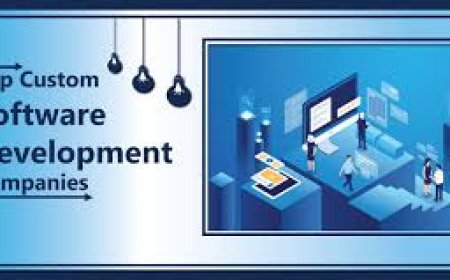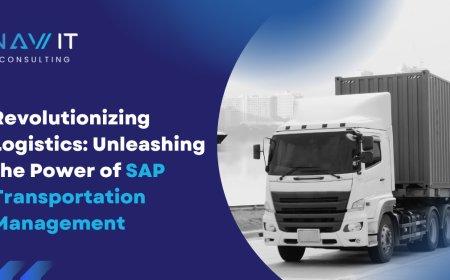Online HRMS Software: Simplifying Modern Workforce Management

In todays fast-paced corporate world, managing human resources has evolved far beyond paperwork and spreadsheets. Organizations of all sizes are turning to online HRMS software (Human Resource Management Systems) to streamline their workforce management processes, improve efficiency, and enhance employee engagement. As remote and hybrid working becomes the new normal, businesses can no longer afford to rely on outdated systems or manual processes that slow down operations.
Lets dive deeper into why online HRMS software is transforming the HR landscape and how businesses can leverage it for smarter management.
What Is Online HRMS Software?
Online HRMS software is a cloud-based human resources management system that automates and simplifies various HR processes. It covers key areas such as employee onboarding, attendance management, payroll processing, performance reviews, leave management, and compliance. Because its cloud-based, it enables HR teams to access critical data securely from anywhere, using a computer or mobile device.
Unlike on-premise solutions, online HRMS software doesnt require heavy IT infrastructure or costly maintenance. It is scalable, user-friendly, and often available on a subscription basis, making it accessible to startups, SMEs, and large enterprises alike.
Key Features of Online HRMS Software
1. Employee Data Management
A robust HRMS acts as a single source of truth for all employee records. Personal details, job profiles, salary structures, and performance history can be stored, accessed, and updated in real-time.
2. Attendance & Leave Management
Online HRMS software makes it easy to track attendance and leaves. Employees can mark attendance remotely via mobile apps, and managers can approve or reject leave requests instantly. This ensures transparency and reduces absenteeism errors.
3. Payroll Automation
One of the most time-consuming HR functionspayrollis automated in an online HRMS. It calculates salaries, deductions, bonuses, and tax components with accuracy, minimizing errors and saving hours of manual work every month.
4. Performance Management
The system helps set goals, conduct performance appraisals, and give timely feedback. It provides HR and team leaders with a clear picture of employee performance trends, helping them make data-driven decisions.
5. Self-Service Portal
With employee self-service portals, team members can apply for leaves, download payslips, view policies, and update personal details without HR intervention, creating a more empowered workforce.
6. Mobile Accessibility
Most online HRMS platforms today come with mobile apps, enabling HR professionals and employees to manage HR functions on the go. This flexibility is essential for companies with remote teams.
Benefits of Online HRMS Software
Improved Efficiency
By automating repetitive tasks like attendance tracking, payroll calculations, and employee onboarding, HR teams can focus on strategic initiatives that drive business growth.
Cost Savings
Online HRMS software reduces dependency on physical infrastructure and manual work, lowering overall HR operational costs. Many providers offer flexible pricing plans based on the number of employees or modules used.
Enhanced Compliance
Keeping up with changing labor laws and tax regulations can be challenging. HRMS solutions are regularly updated to meet compliance requirements, reducing the risk of legal penalties.
Better Employee Experience
Self-service features and transparent processes make employees feel valued and engaged. A happy and informed workforce contributes to higher retention rates.
Real-Time Analytics
Online HRMS software provides actionable insights through dashboards and reports. HR teams can quickly analyze workforce trends, identify issues, and plan interventions proactively.
Who Needs Online HRMS Software?
Online HRMS software is no longer just for large corporations. Today, small and mid-sized businesses benefit equally, if not more, from implementing such systems. Startups use HRMS to scale their operations without hiring a large HR team, while SMEs and enterprises use it to unify processes across multiple locations.
Industries like IT, manufacturing, retail, logistics, healthcare, and education find HRMS solutions extremely valuable. Remote-first companies, in particular, rely on these platforms to manage a distributed workforce efficiently.
Factors to Consider When Choosing an Online HRMS
When evaluating different HRMS solutions, businesses should look at:
-
Ease of Use: The interface should be simple for both HR teams and employees.
-
Scalability: The system should grow with your business needs.
-
Integration: Check if the HRMS can integrate with other business tools like accounting software, CRM, or ERP.
-
Customer Support: Responsive customer support can save a lot of headaches during implementation and troubleshooting.
-
Customization: Look for a system that can be tailored to your specific HR processes.
-
HR software price: While evaluating vendors, compare the HR software price and features carefully to ensure it fits your budget without compromising essential functionality.
Future of Online HRMS Software
With the growing adoption of artificial intelligence (AI) and machine learning (ML) in HR technologies, the future of online HRMS software looks promising. These systems are becoming more intelligent, capable of predicting employee turnover, optimizing hiring processes, and personalizing employee experiences.
Additionally, integration with tools like chatbots, virtual onboarding assistants, and employee engagement platforms will further automate and humanize HR processes.
Conclusion
In a world where workforce expectations and business dynamics are constantly evolving, online HRMS software provides the flexibility, efficiency, and intelligence that modern organizations need. It not only streamlines operations but also empowers HR teams to focus on people-centric strategies that drive business success.












































